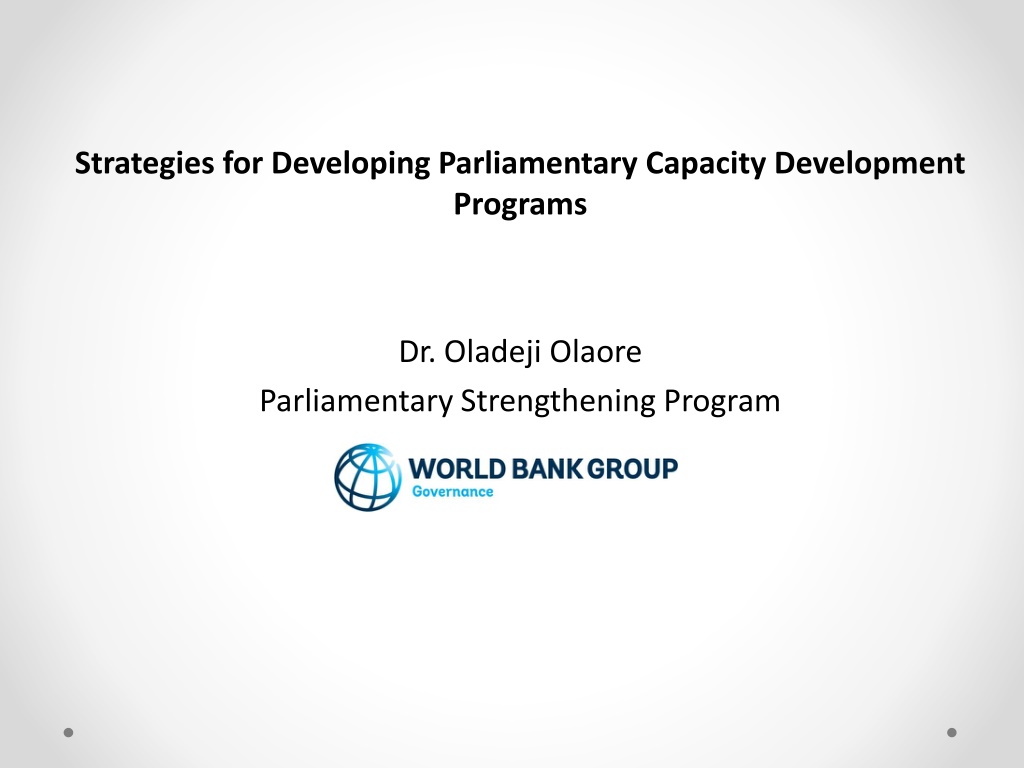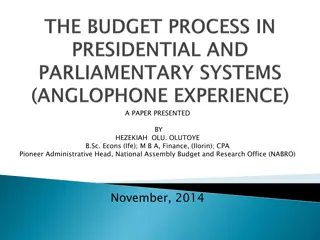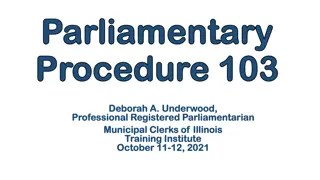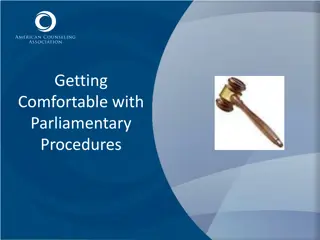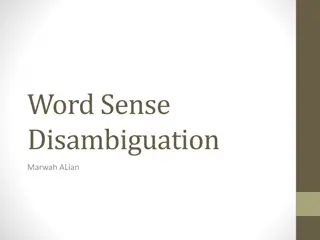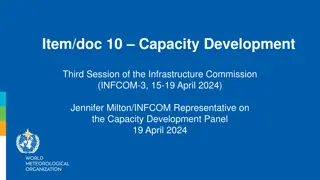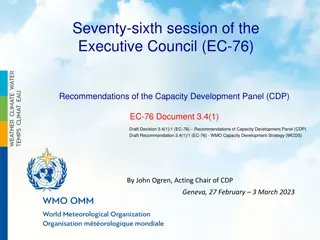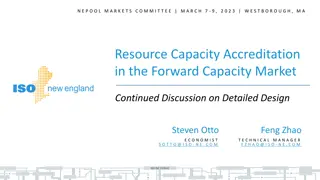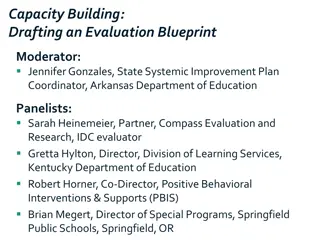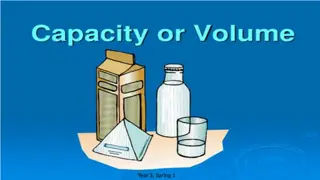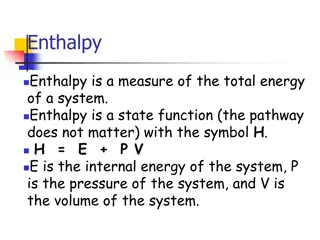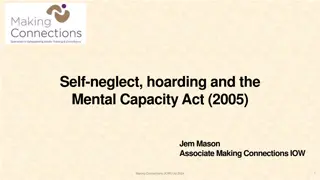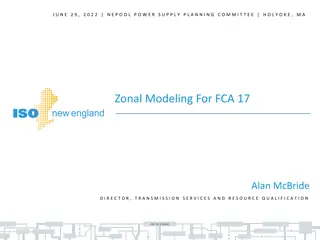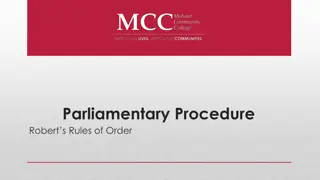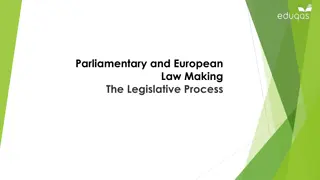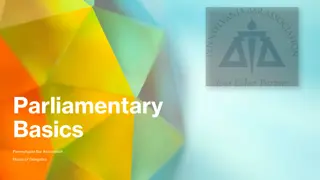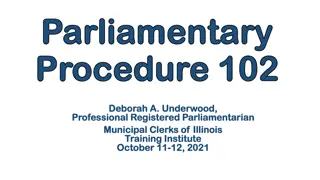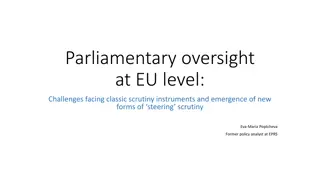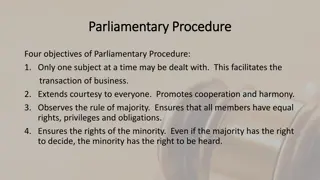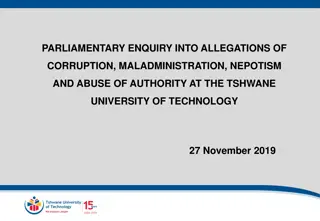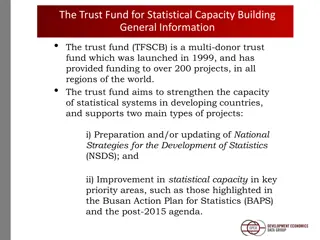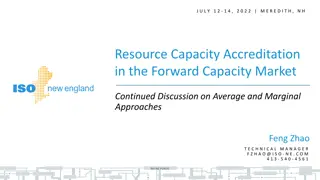Enhancing Parliamentary Capacity Development Programs: Strategies and Approaches
Parliamentary capacity development programs aim to enhance the functions of parliaments for effective oversight, representation, and lawmaking to contribute to a country's development agenda. Understanding legislative institutions' complexity and involving various stakeholders are crucial. Approaches include individual empowerment, institutional strengthening, networking, and applied research. Capacity-building tools involve strategic planning, technology adoption, structured learning, and fostering networks.
Download Presentation

Please find below an Image/Link to download the presentation.
The content on the website is provided AS IS for your information and personal use only. It may not be sold, licensed, or shared on other websites without obtaining consent from the author. Download presentation by click this link. If you encounter any issues during the download, it is possible that the publisher has removed the file from their server.
E N D
Presentation Transcript
Strategies for Developing Parliamentary Capacity Development Programs Dr. Oladeji Olaore Parliamentary Strengthening Program
What is the goal of Parliamentary Capacity Development Programs? To enhance the capacity of parliaments to effectively perform their functions (oversight, representation and lawmaking) in order to better contribute to a country s development agenda.
Understanding Legislative Institutions A common misconception is that Parliaments are a single institution. Parliaments are made up of multiple intersecting institutions with varying mandates and purposes Parliamentary Capacity Development Program must acknowledges this dynamic and seeks to empower key change agents within Parliament to work collaboratively to achieve desired result
Parliament as a Multi-stakeholders Institution Elected Representatives/MPs Parliamentary Administration Parliamentary Staff o Permanent staff o Legislative Aides/Political staff Party Caucus Women Caucus
Parliamentary Strengthening Approaches: Approaches to parliamentary capacity development: 1. Individual Approach: Enhancing the capacity of individual Members of Parliament and Professional Parliamentary Staff); 2. Institutional Approach: Whole-of-Institution/Parliamentary Administration/Committee Strengthening 3. Network /CoP Approach: Bringing together like-minded MPs/ Parliamentary Committees or Clerks at the regional and national levels to learn from each other s experience). 4. Applied Research: Provides platform for knowledge products, contents for updated learning and innovative program design A strategy that combines all three approaches have a better chance of achieving greater capacity yields.
Capacity Development Tools Capacity Building is an incremental process and it employs several tools: Institutional strengthening e.g. Strategic planning, Technology adoption, Parliamentary Administration, Communication Strategy Structured learning to build individual capacity mostly employ F2F training of MPs and Staff Professional (Clerks) and Political Aides e.g (e-learning courses, workshops, seminars etc) Fostering and strengthening networks and CoPs e.g. NAPAC Community of Clerks
Capacity Development Tools Cont. Knowledge Exchange Platforms KS shared memory, technical assistance and experience sharing Peer learning though peer assist/exchange Action oriented planning Global, Regional and National networks Participatory knowledge capture techniques online and offline
Parliamentary Capacity Development Lessons Learned No single model is right for all jurisdictions (no one size fits all). A Multi-faceted, medium-to-long term approach that recognizes the unique learning environment, information needs, and absorptive capacity of the stakeholders stands to achieve better results. Contextual Adaptation is Key - Context matters. Acknowledge the tacit knowledge within the target participants Acknowledge challenges facing MPs and staff and cultivate them
Parliamentary Capacity Development Lessons Learned cont. PSP requires iterative approach, learning from successful implementation of specific programs Periodic internal reviews and on-going M&E helps to assess impacts and identify gaps Collaboration with beneficiary to ensure that content is demand driven is critical Leverage opportunities from other agencies Clear identifiable incentives Provide solution, skills development, professional development, preparation for the next level in career goals.
Challenges of Parliamentary Strengthening Programs Lack of clearly defined development objective Lack of baseline assessment If you build it they will come Syndrome o Engage beneficiary for guidance and feedback at design phase o Ask yourself Who are we designing this program for? o Why? Is there a need to be met or gap to fill? o Is there any sense of ownership?
Challenges of Parliamentary Strengthening Programs Cont. Employ innovative approaches o Practical and hands-on approach o Case clinics o Case study o Dialogue sessions Unrealistic Expectations and lack of pragmatism Lack of strategy to harness tacit knowledge and processional expertise from beneficiaries.
